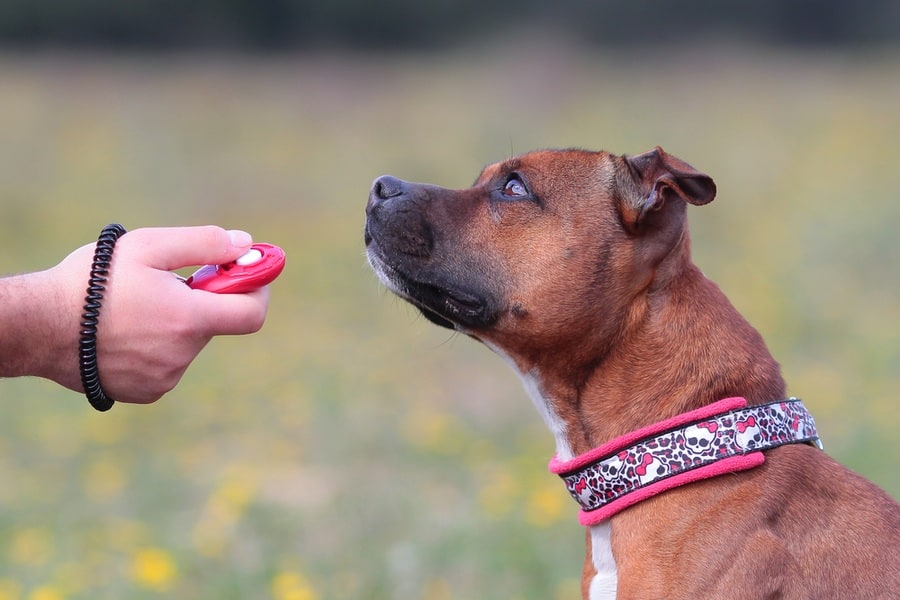Training Your Dog
Training your dog is a crucial aspect of responsible pet ownership. Not only does it ensure their safety and well-being, but it also strengthens the bond between you and your furry companion. Training provides mental stimulation, encourages good behavior, and promotes a harmonious living environment. In this article, we will explore effective training tips and techniques that will help you raise a happy and well-behaved canine companion.
Start Early:
Training should begin as soon as you bring your new dog home, regardless of their age or breed. Puppies are like sponges, eager to learn and explore the world around them. Begin with basic commands such as sit, stay, and come, using positive reinforcement techniques. Early training sets a solid foundation for future learning and establishes a routine of positive behavior.
Use Positive Reinforcement:
Positive reinforcement is a powerful tool in dog training. Rewarding desired behaviors with treats, praise, and affection reinforces the behavior and motivates your dog to repeat it. When your dog responds correctly to a command or exhibits good behavior, offer immediate praise and a small treat. This positive association encourages learning and builds a strong bond between you and your dog.
Be Consistent:
Consistency is key in dog training. Use the same command for a specific behavior and ensure that everyone in the household follows the same rules. Dogs thrive on routine and predictability, so consistent training methods will help them understand expectations. Avoid mixed messages by providing clear and consistent cues, reinforcing desired behaviors, and redirecting unwanted behaviors.
Patience is Key:
Training takes time and patience. Remember that dogs learn at their own pace, and some may require more time to grasp certain commands or behaviors. Stay patient and avoid frustration or punishment, as these can hinder the training process and damage the trust between you and your dog. Celebrate small victories and remain consistent in your training efforts.
Socialize Your Dog:
Socialization is vital for raising a well-behaved and confident dog. Introduce your dog to various people, animals, and environments in a positive and controlled manner. Expose them to different sights, sounds, and situations, gradually increasing the level of difficulty. Proper socialization helps prevent fear, aggression, and anxiety, creating a well-adjusted and friendly canine companion.
Focus on Basic Commands:
Teaching your dog basic commands lays the foundation for more advanced training and ensures their safety in various situations. Start with essential commands such as sit, stay, come, down, and leave it. Use clear and consistent cues, and reward your dog for successfully following each command. These basic commands provide control and create a well-behaved and obedient dog.
Leash Training:
Leash training is essential for well-behaved dogs, as it ensures their safety during walks and outings. Introduce your dog to the leash gradually, allowing them to get used to the sensation before venturing outside. Teach them to walk calmly by your side without pulling, using positive reinforcement when they exhibit the desired behavior. Be patient and consistent, rewarding them for good leash manners.
Manage Undesirable Behaviors:
Addressing and managing undesirable behaviors is an integral part of dog training. If your dog engages in unwanted behaviors such as jumping, excessive barking, or chewing, redirect their attention to more appropriate activities. Offer alternative toys, teach them the “leave it” command, or provide mental stimulation through interactive puzzles or training games. Consistency and positive reinforcement will help replace unwanted behaviors with desired ones.
Seek Professional Help If Needed:
If you encounter challenges or if your dog displays persistent behavioral issues, consider seeking assistance from a professional dog trainer or behaviorist. They can provide expert guidance and tailor training techniques to suit your dog’s specific needs. A professional trainer can assess your dog’s behavior, identify underlying issues, and provide effective strategies to address them. Remember, it’s never too late to seek help and make improvements in your dog’s behavior.
Practice Regularly:
Consistency and regular practice are key to maintaining a well-trained dog. Dedicate time each day to reinforce learned commands, practice new skills, and engage in interactive play. Training should be an ongoing process throughout your dog’s life, offering mental stimulation and strengthening the bond between you and your canine companion.
Conclusion:
Training your dog is a rewarding and essential part of pet ownership. By implementing positive reinforcement techniques, establishing a consistent routine, and focusing on basic commands, you can raise a happy and well-behaved canine companion. Remember to be patient, maintain a positive attitude, and adapt your training methods to suit your dog’s individual needs. With time, effort, and dedication, you will not only have a well-trained dog but also a strong and loving bond that will last a lifetime.

